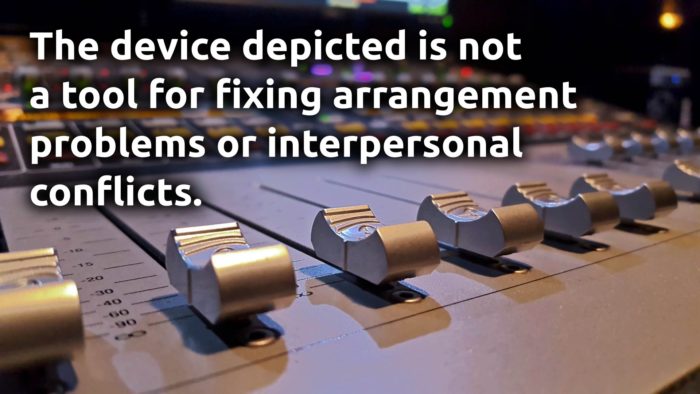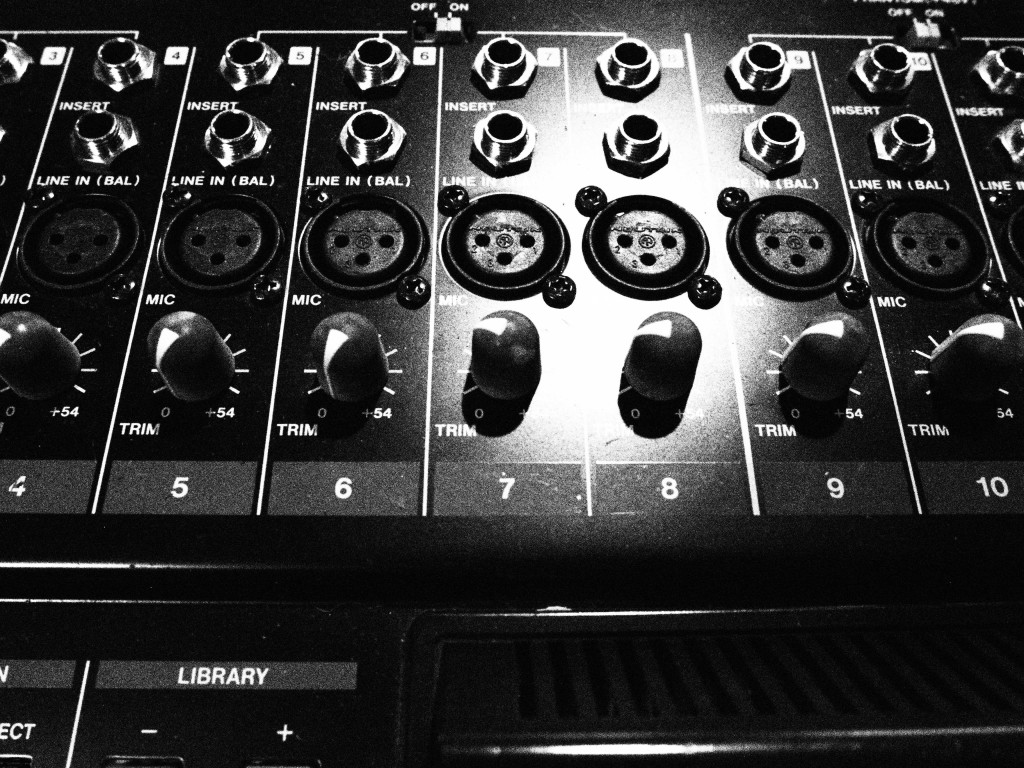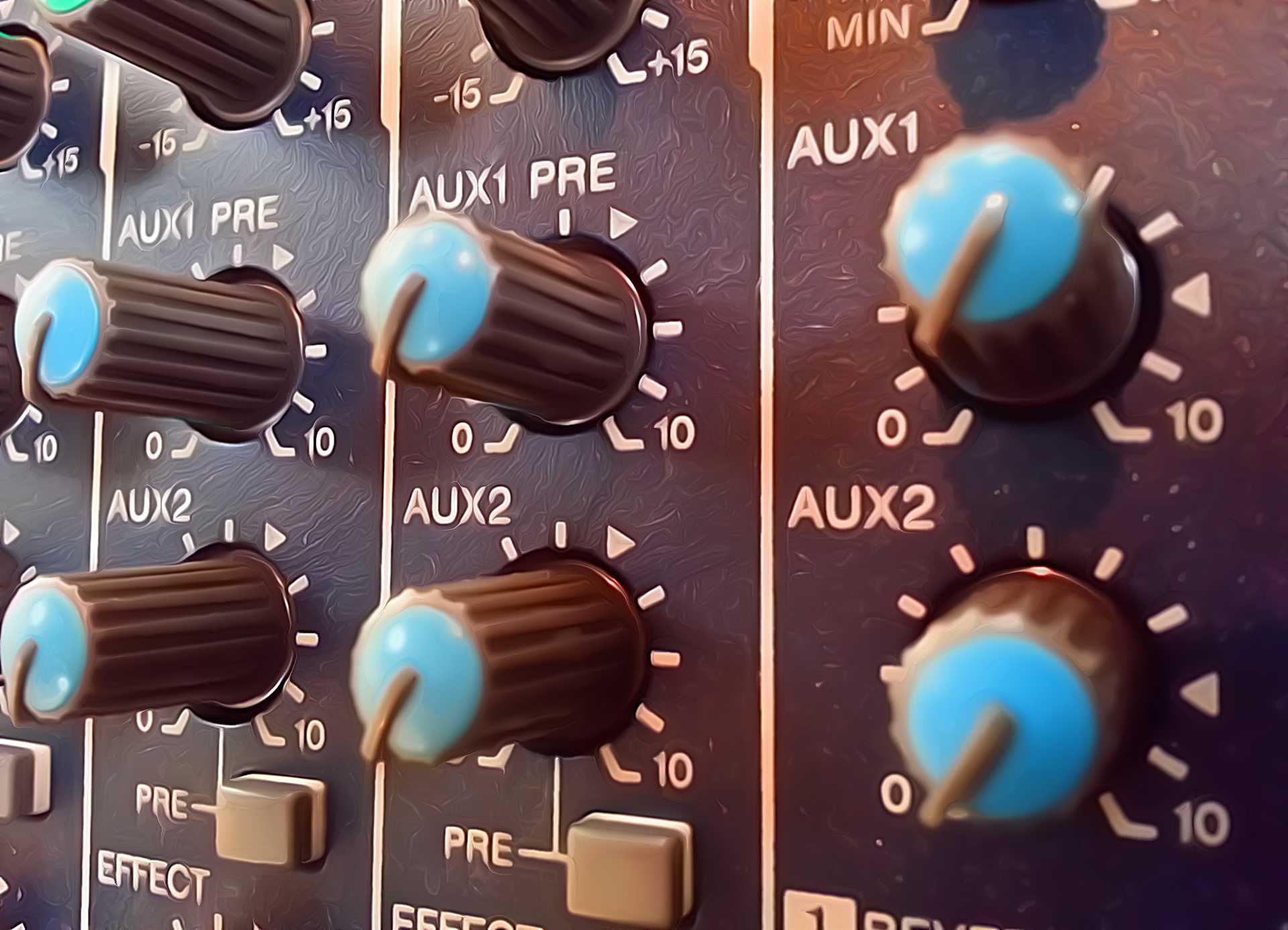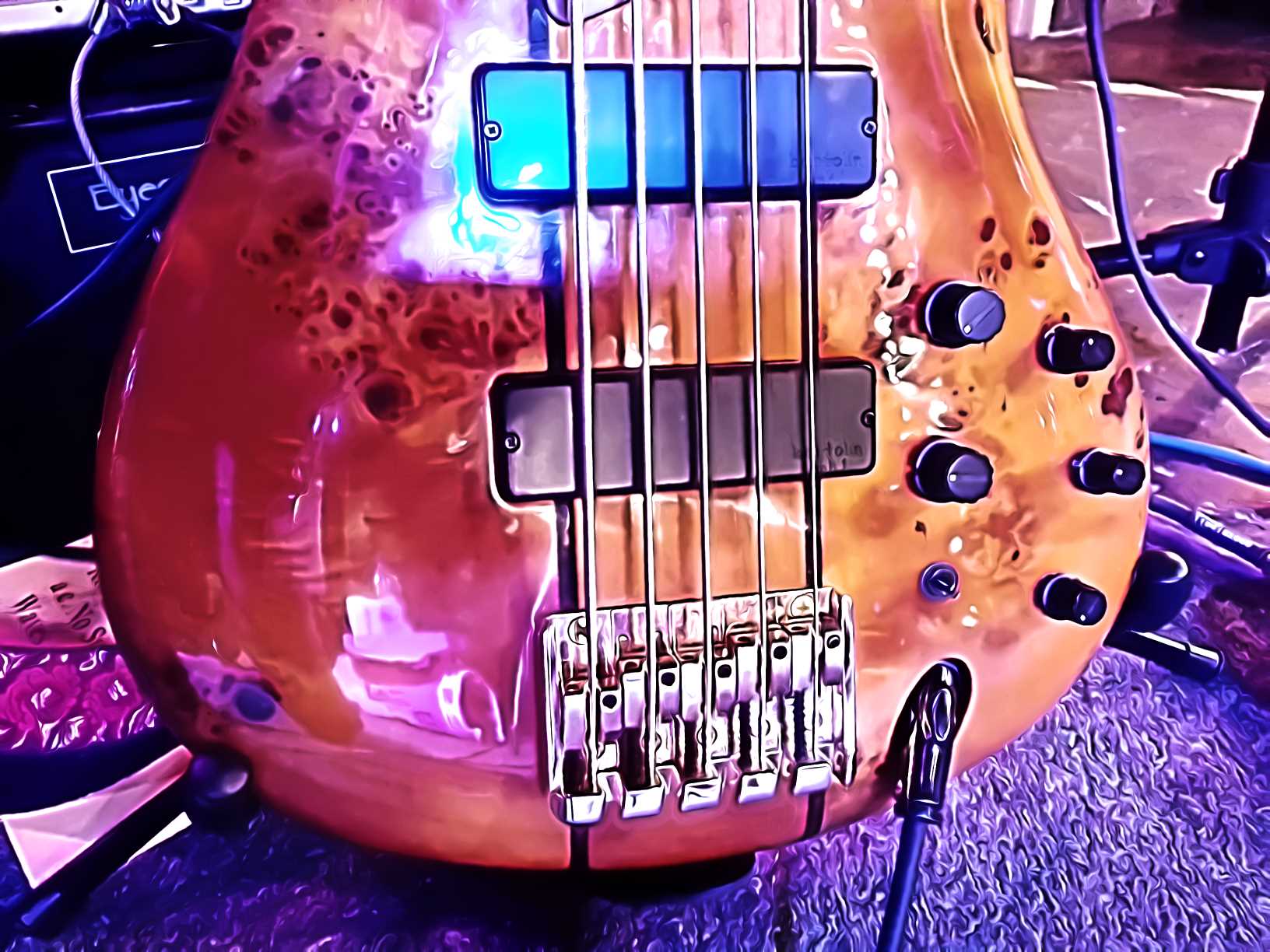I was finally having a bit of relaxation after the show. We had pulled it off. By the grace of God, and with a lot of help and hospitality, we had made the show work. Everybody had seemed to be very pleased in the end.
Even so, I was not enjoying my turkey sandwich and Sun Chips. Not really, anyway. It’s not that they were bad, just overpriced. It was about the same story for the…well…I guess I’ll call it “Gatorade” that I was having. I was enjoying that even less, because it was tasteless.
Positively unflavored.
Well, I guess it was unflavored. I’m assuming it wasn’t. I didn’t actually taste my drink as it went in, due to its point of entry being an artfully administered puncture wound in my left arm.
As places to have an unplanned afterparty go, the Emergency Department at St. Mark’s is not on the short-list. The staff are great, and the place is REALLY clean, but it’s just not a place you want to be, you know?
More on this later.
The Safety Factor: 1:00 PM – 4:00 PM
Webb A/V is a show-production force in this town because they are GOOD at what they do. Obviously, they have the technical chops and the gear to pull off their contracted events, but there’s more to it than that: They seem to instinctively get that this business is about being a service industry with an excellent safety record. If you are the client, you will be taken care of, and everybody will leave with all the body parts that they brought with them.
I walked up to the stage, with none of the onsite crew knowing me from a hole in the ground, and I was instantly treated with accommodation and courtesy. All I had to do was figure out my own plan of attack. The crew leader, Tom (I think it was Tom, the day kind of turned into a blur) was on top of everything necessary – the first thing being power.
“Hey man,” he said, holding up an electrical quad-box, “you guys are going to have your own, 30-amp circuit for stage. I’m going to give you the X-phase, and we’ll use Y and Z for the PA and lights.” (If you’ve never encountered it before, multi-phase power is common for shows with bigger electrical requirements.) Webb was ready to go, they were ready for us, and the deck wouldn’t have to share power with anyone. That’s a pretty good way to start things off. The provided FOH rig was a “4 over 2” QSC KLA, which sounded pretty darn nice as DJ, the Webb A1, started dialing it up. This left the band and me to do our own thing on deck, which kept things moving along nicely.
Life would have been perfect, except for the weather. The great outdoors has great acoustics, but it also has a great many ways to wreck your gig.
While this particular bout of “Utah overcast moodiness” was hardly a mid-Atlantic storm, it was still producing some noticeable forces. That is to say that, for our situation, the gustiness was tremendous – the problem being wind-related. The various light and sound trees were all firmly weighted down with sandbags, but even so, the crew leader was concerned enough to keep the masts in their lowered positions as much as possible. Air currents would die down, and then whip up with authority.
Did you know that cable-tub lids make excellent gliders? Did you know that ride cymbals are very effective as both kites and boat-sails? Did you know that plastic crowd-barriers LOVE to skitter across parking lots? These are things that we found out.
At some point, a wind advisory was issued. It was issued at roughly the same time the swirling air found some loose dirt, whipping it across my face and arms with an accompanying sensation of being stabbed with a hundred small needles.
On the upside, all the dry skin I had exposed was neatly removed. (Ladies, I don’t know what those fashion mags tell you about skincare, but I’m pretty sure that all the oils and spa-treatments in the world are NOTHING compared to good, old-fashioned sandblasting.) The downside was that things were clearly getting out of hand. About a minute later, the crew lead walked up.
“We’ve got to pull the plug and take all this down.”
…and that, right there, was the ultimate expression of professionalism. The expense and effort involved in putting up a show-rig is non-trivial. As such, there is tremendous pressure to “tough out” any situation. In the end, though, screwing up on the side of safety is always the correct choice. People in this business have died because the drive to keep the show on has overridden a healthy sense of danger. The chances of things not ending well were plenty high, so it was time for Webb to pack up and go.
What followed was a scramble for the band and me to yank down our more-than-halfway set deck, and run everything indoors. As we did so, there was one nagging problem: We really didn’t know what we were going to do once we got inside.
The Hospitality Factor: 4:00 PM – 9:00 PM
Especially when I’m in someone else’s house, I try to assume as little as possible. In this case, I was in The Rock Church’s house, as they were providing the indoors part of the whole equation. What we were met with when we walked in was a stage that was already set and ready to go – for someone else. The church band was that someone else.
To me, the answer was clear. We were going to set up around what was already there. We would use all our own boxes (which we had brought for monitor world) to handle both the stage and FOH. I would use my remotable console as a stagebox, and run things off a laptop with a network connection. We were going to have a show, and we weren’t going to muss up anyone’s hair in the process. The only problem was that I didn’t have any speaker stands with me.
Thinking quickly, I spied a couple of tall, cafe tables out in the audience. I could put a couple of speakers on those, and the result might not completely suck. I grabbed ahold of (who ended up being) Steele, the pastor, and asked if we could “appropriate” those bits of furniture.
“You can have anything you want!” Steele declared, emphatically.
He and another gentleman pulled the tables over to the stage.
“What do you want these for?” Steele asked.
I related my plan to get a couple of boxes up to ear level.
“Man, you should just use our system. Hold on, I’ll give Tim a call, and he’ll get you set up.”
In the space of about 30 seconds, we had gone from piling together a disaster-mitigation rig to being first-class citizens on a system every bit as good as what we were originally slated to use. On top of that, it was all hands on deck, on short notice. Tim came down at full-speed, patiently ran me through the system setup, and then yanked the existing patch entirely so that I would have a blank canvas to use. Everything was at our disposal, and the up-center drum riser was cheerfully removed to make room for Mokie’s two-kit percussion ensemble. They even lent us the church’s uber-rad, SVT bass rig.
On top of it all, Foster hurried down and – with patience as great as Tim’s – worked up an honest-to-goodness light show for both the band AND a hip-hop dance group. In record time. I would later go on record as saying that “Foster’s” is Australian for “beer,” whereas “Foster” is Australian for “killer light guy.”
Now, in my mind, I don’t think that Mokie and I are tough to work with. At the same time, the show (and all our needs) were basically dumped, last minute, on all the folks at The Rock. For that reason alone, they get a massive “Thank You” from me for “putting up with our crap.” Everybody in that building embodied hospitality, and the show happened because of it.
I must not fail to mention another couple of elements: The supreme importance of having a sanely-tuned, sanely-patched system to work with, and the equally supreme importance of having a great band to work with. Mokie is an ensemble that knows how to actually be a band. They would still basically sound like themselves with no PA and no monitors. While it would not be the most fun gig for them, they could pull it off. Because of this, the audio system doesn’t have to work any magic to “fix things.” Rather, the PA is able to act in its best capacity, which is to translate the already cohesive band into the audience. When you add that to an FOH and monitor setup ready to do real sound reinforcement (by sounding nice while being “unhyped”) what you get is a show that can be run effectively in a crisis.
I normally use EQ and compression on my FOH channels in a manner reminiscent of a sledgehammer. I normally have a separate, virtual monitor world. There was no time for any of that on this gig. We had to throw-and-go…and we were fine. I didn’t have all the flexibility I could have used, but that’s just the final layer of varnish anyway. For what was going on, I was able to run my channels surprisingly flat – and get away with it pretty handily.
The Hospital Factor: 9:00 PM – 3:00 AM
As the gig hit set break, Mokie’s fearless leader, Chip, walked out to FOH.
“It sounds GREAT, man. Some of the folks are even saying it’s the best show we’ve ever done.”
“Well,” I said, “clearly this means that the way to do these shows is to set up halfway, tear down and reset in a blind panic, and then just go for it with no preparation.”
I was feeling pretty good about what Chip said, but I can’t say that I was really feeling good in general. I wasn’t incapacitated, but I was definitely wondering what was wrong with myself. I had this weird aching in my upper chest and the top of my back. Even with the show settling into a basically comfortable groove, my heart wouldn’t slow down to a normal pace. I hadn’t done a strenuous gig in a long time, and the sudden call to maximum performance was not treating me kindly.
“Don’t be anxious,” I thought to myself, “because being anxious just makes it worse.”
As the show wore on, the good news was that I didn’t feel worse. I was able to smile through my discomfort and get things done. The bad news was that I wasn’t getting much better. As we ended things and tore down the show, I figured that I just needed to go home and go to bed.
Three-quarters of the way back to the house, on the I80 – I215 collector, it happened. I was barreling along with a vehicle full of gear, when the unmistakable feeling of being about to pass out hit me like a ton of bricks. What seemed like a white-hot lump fell into the bottom of my butt. My stomach felt like it would readily wrench its entire contents out my backside, given half the chance. I pulled to the shoulder and slapped the button for my emergency flashers. I wasn’t thinking clearly. Instead of yanking my brake, I moved the gear-selector to “Park.” The transmission made a howling grind of protest as the parking pawl ratcheted against a still mostly-highway-speed transmission. My hands were tingling.
In a daze, I sat drenched in sweat. A few cars tore by me. I wondered if I was having a heart attack. I thought about what it would take to get my phone out and call 911. I didn’t know if I could get my phone. I figured that I had about two minutes to decide.
Slowly, I started to feel better. The pain in my upper body was mostly gone, actually.
Half of me just wanted to drive home and forget the whole thing. The other half of me knew that treating such an event lightly was not to be filed in the “Smart Ideas” drawer. My more cautious half won the argument, and I drove to St. Marks instead of the house.
At the ER, the various goings-on began to…go on. No, I hadn’t had dinner. Oh…yes, why I DID have a bit of a sunburn. I did feel better now that the episode had passed.
The various tests were ordered, and my aforementioned sandwich was ordered. The nurse obligingly stuck me with an IV so that I could have a big drink without actually drinking anything. I sat, craning my neck to watch my vitals monitor.
That heart rate looks a little high.
Is that ECG trace normal?
Don’t be nervous.
That doesn’t seem right.
Don’t be nervous.
The MD was ultimately satisfied that I was not about to die. She was also, somewhat surprisingly, just fine with the idea of putting me back in control of 3000+ lbs worth of metal, glass, fuel, and audio gear. She sent me out the door with a stack of papers talking about things like dehydration and near-syncope. I was told, in no uncertain terms, to take it easy the next day. I was happy to oblige, being tired from the whole thing.
The irony, of course, is that I was all set to be “100% for safety” when it came to things like wind and water, but I failed to take care of myself. A few bucks worth of actual Gatorade might just have kept me out of the ER. I have no idea how big my bill will turn out to be – I’m insured, thanks to my mom being very keen on that whole issue – but no matter how much money I end up owing, it still contributes to my final, self-administered diagnosis:
Don’t be an idiot next time.

 Want to use this image for something else? Great! Click it for the link to a high-res or resolution-independent version.
Want to use this image for something else? Great! Click it for the link to a high-res or resolution-independent version.







